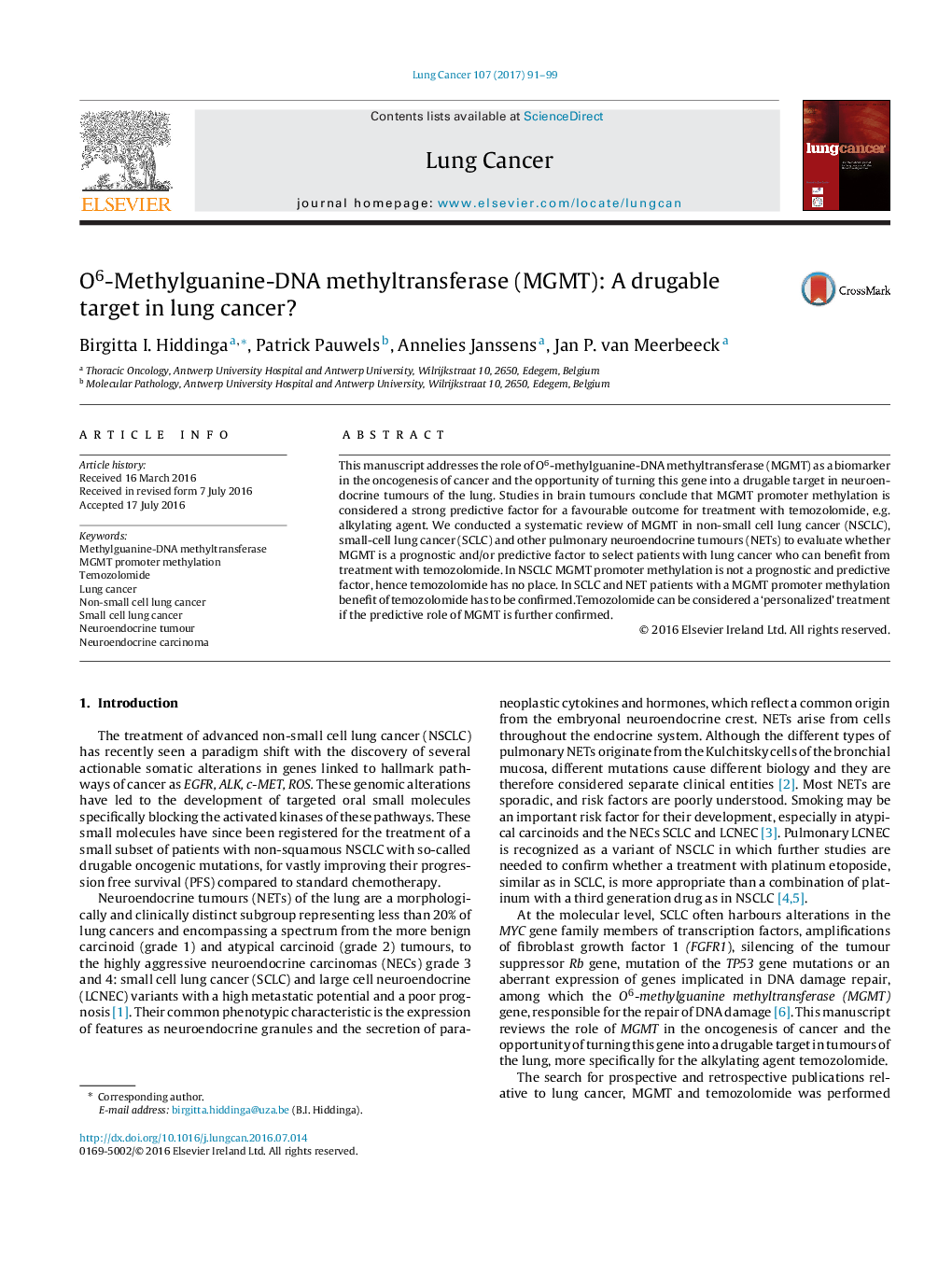| Article ID | Journal | Published Year | Pages | File Type |
|---|---|---|---|---|
| 5528109 | Lung Cancer | 2017 | 9 Pages |
â¢MGMT promoter methylation predicts response to treatment with alkylating agents in patients with glioblastoma multiforme and possibly in small cell lung cancer and pulmonary neuroendocrine tumours.â¢In small cell lung cancer and large cell neuroendocrine carcinoma there's a high unmet need for new treatment options to improve the prognosis. Repurposing of drugs is an acceptable and innovative strategy in the advancement of treatment.â¢Temozolomide can be considered a 'personalized' treatment in lung cancer if the predictive role of MGMT is further confirmed.
This manuscript addresses the role of O6-methylguanine-DNA methyltransferase (MGMT) as a biomarker in the oncogenesis of cancer and the opportunity of turning this gene into a drugable target in neuroendocrine tumours of the lung. Studies in brain tumours conclude that MGMT promoter methylation is considered a strong predictive factor for a favourable outcome for treatment with temozolomide, e.g. alkylating agent. We conducted a systematic review of MGMT in non-small cell lung cancer (NSCLC), small-cell lung cancer (SCLC) and other pulmonary neuroendocrine tumours (NETs) to evaluate whether MGMT is a prognostic and/or predictive factor to select patients with lung cancer who can benefit from treatment with temozolomide. In NSCLC MGMT promoter methylation is not a prognostic and predictive factor, hence temozolomide has no place. In SCLC and NET patients with a MGMT promoter methylation benefit of temozolomide has to be confirmed.Temozolomide can be considered a 'personalized' treatment if the predictive role of MGMT is further confirmed.
